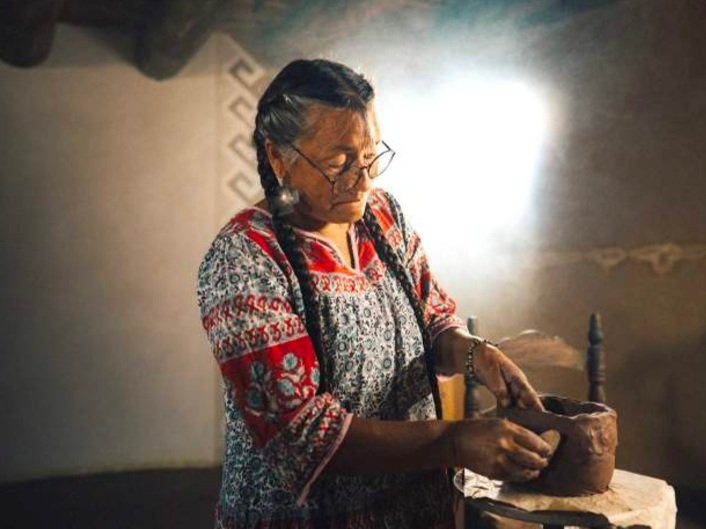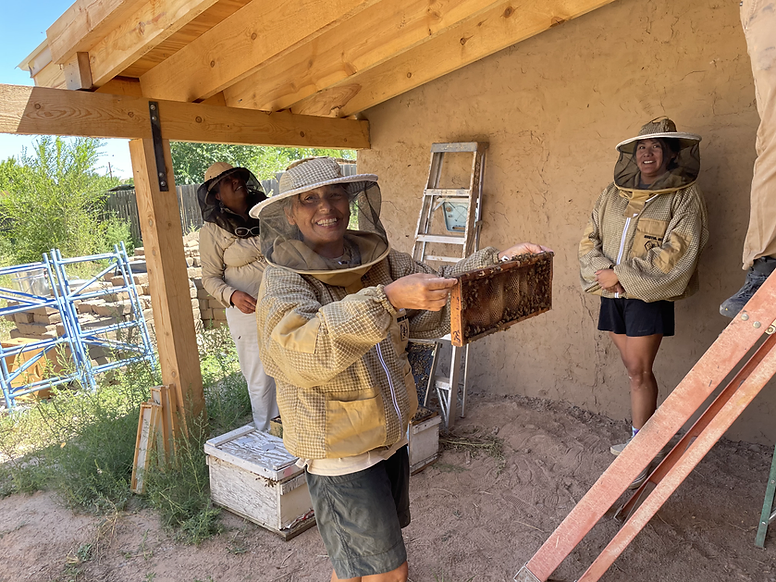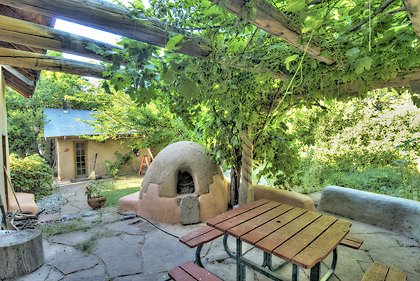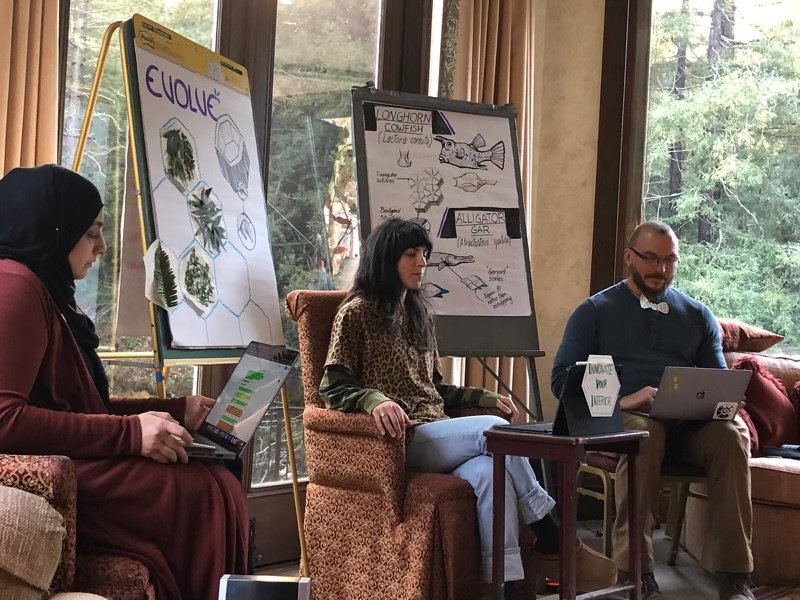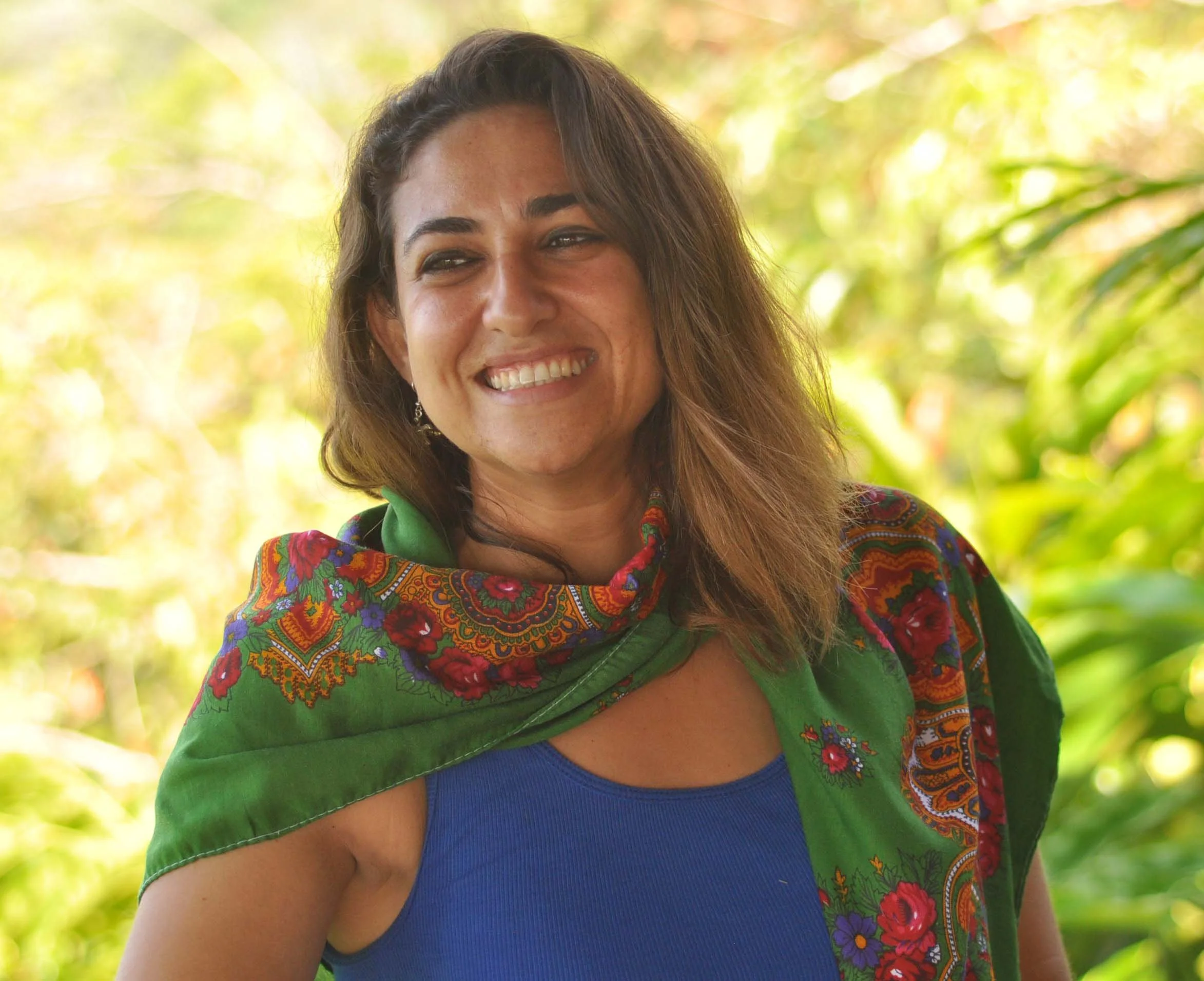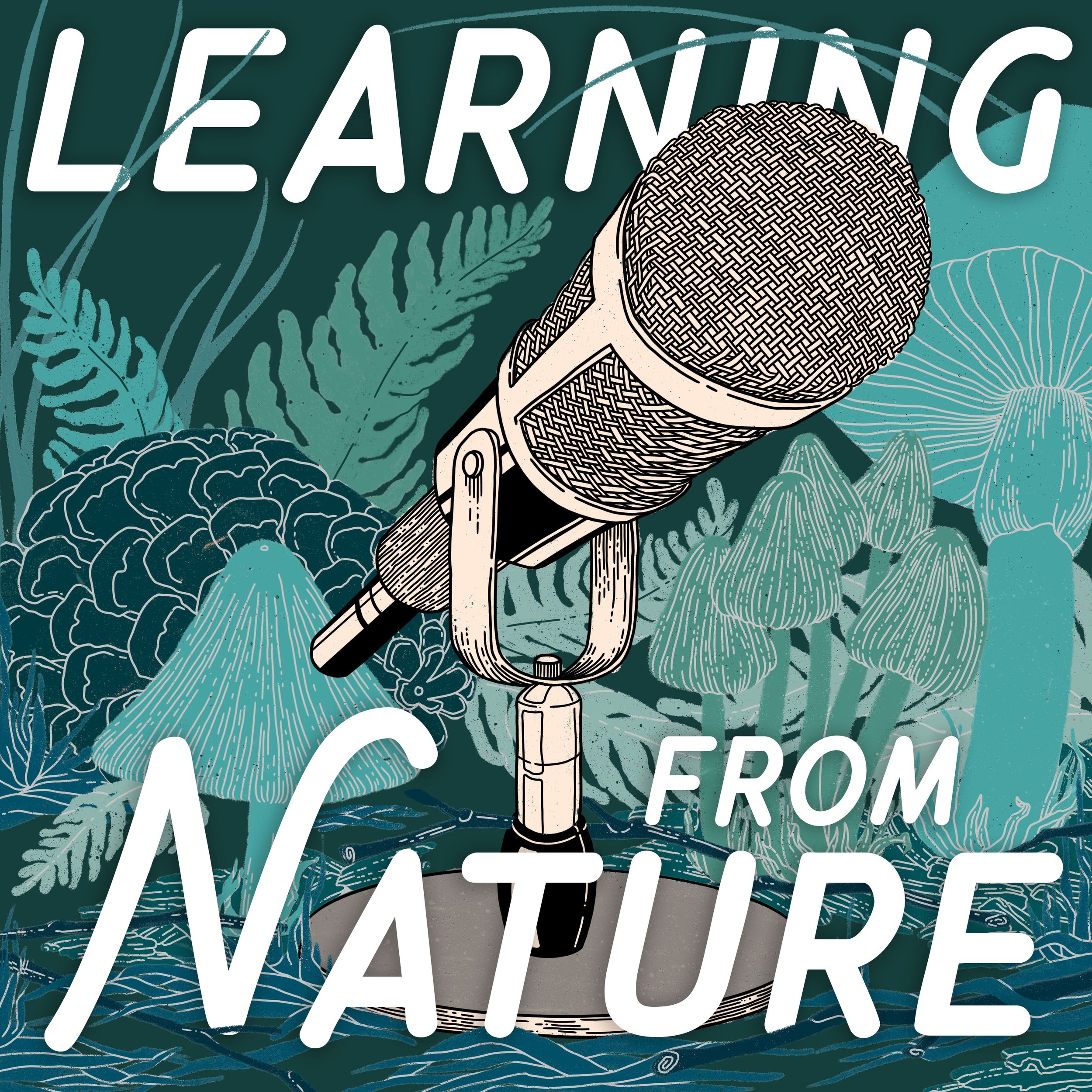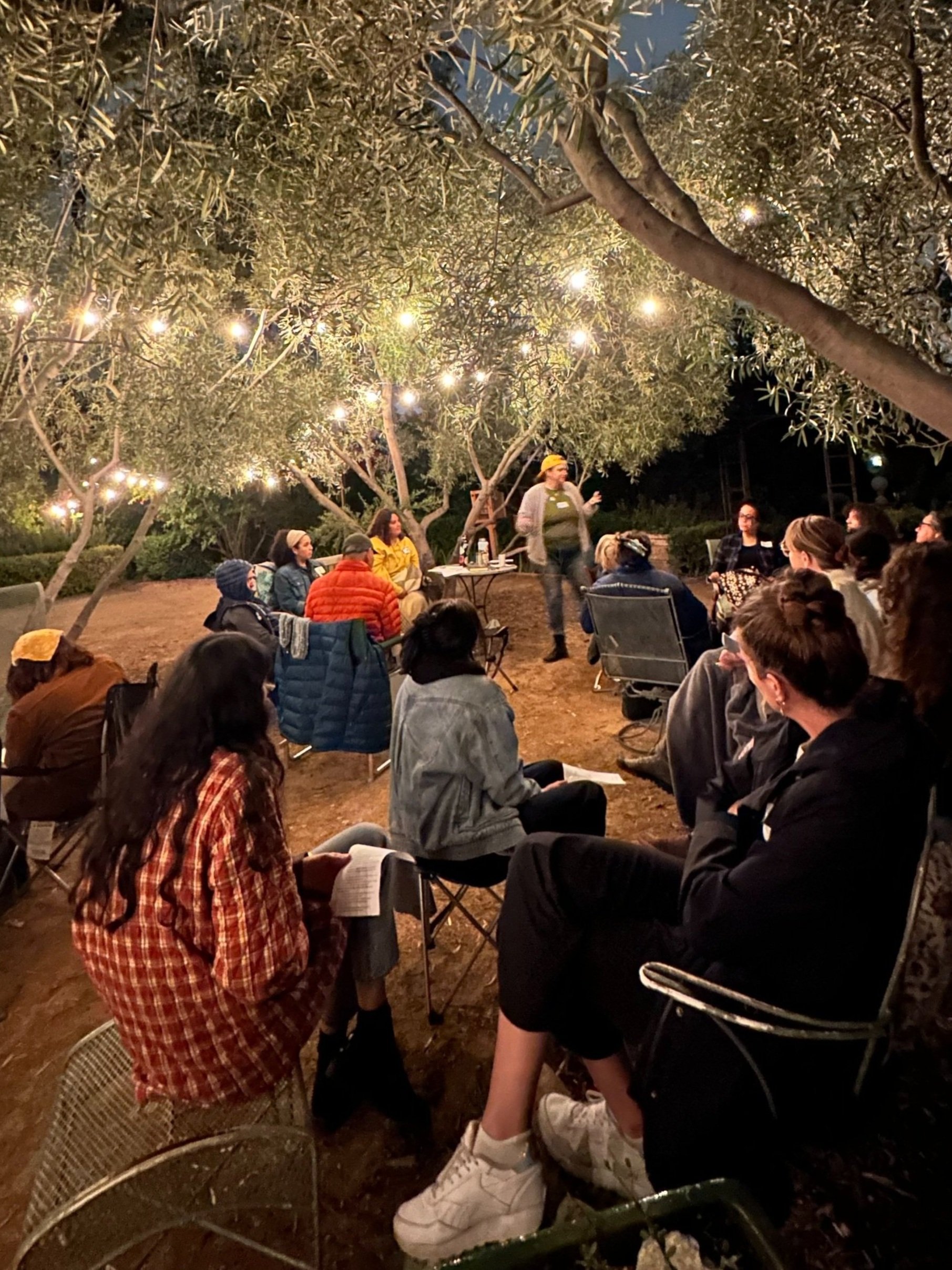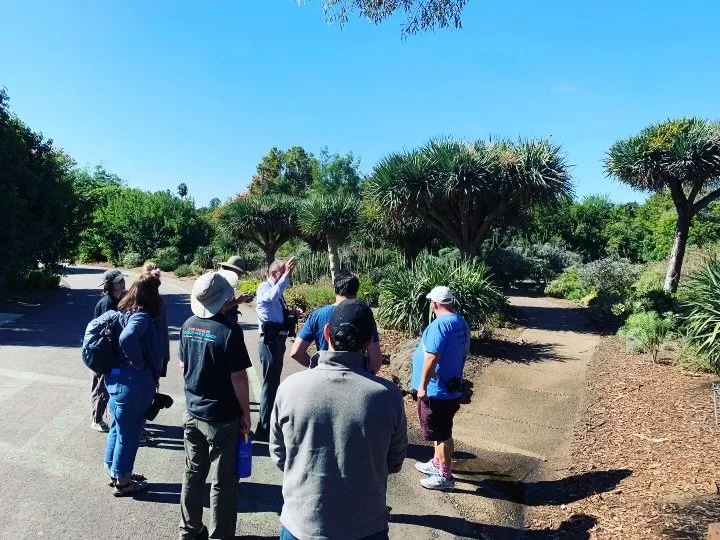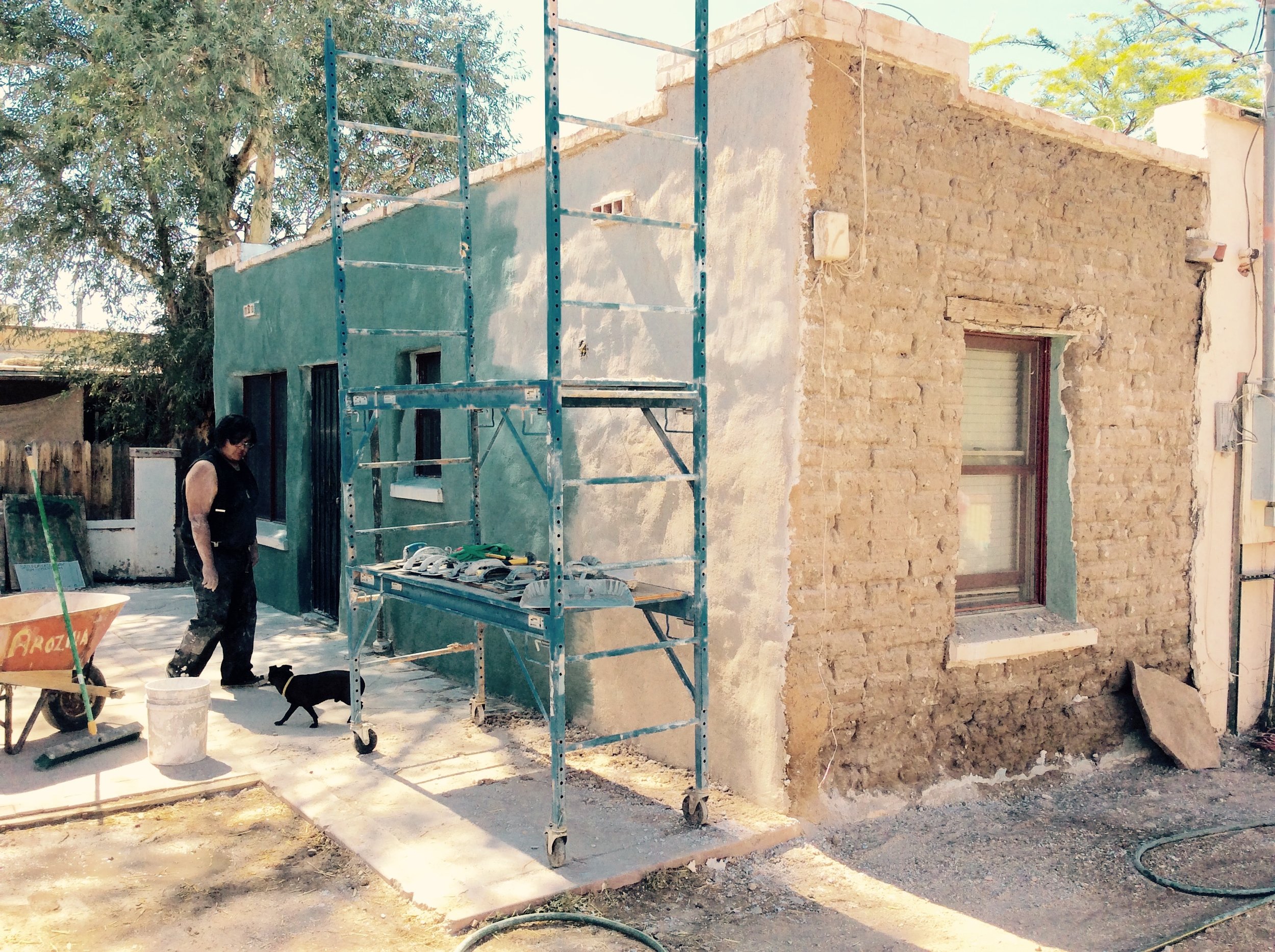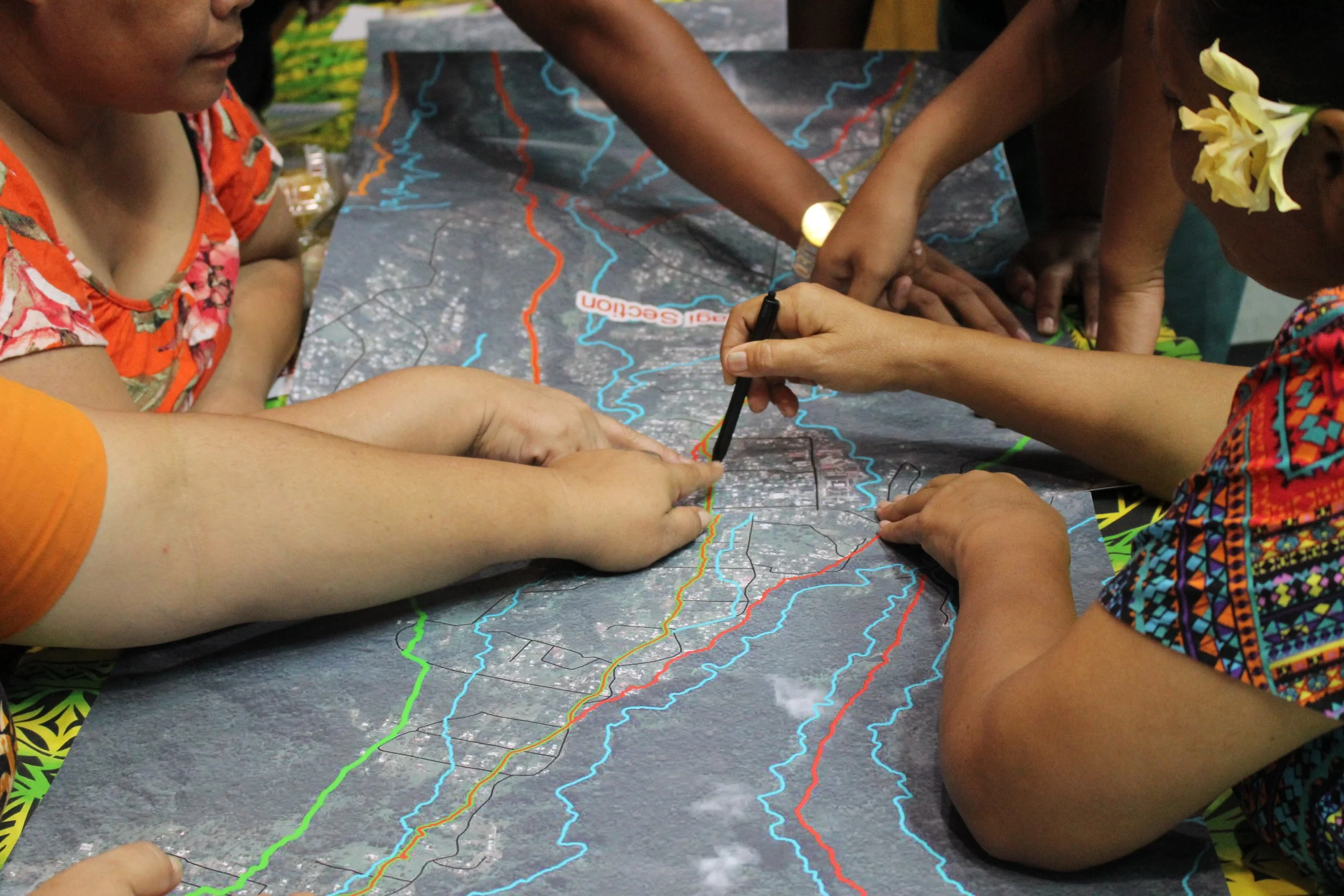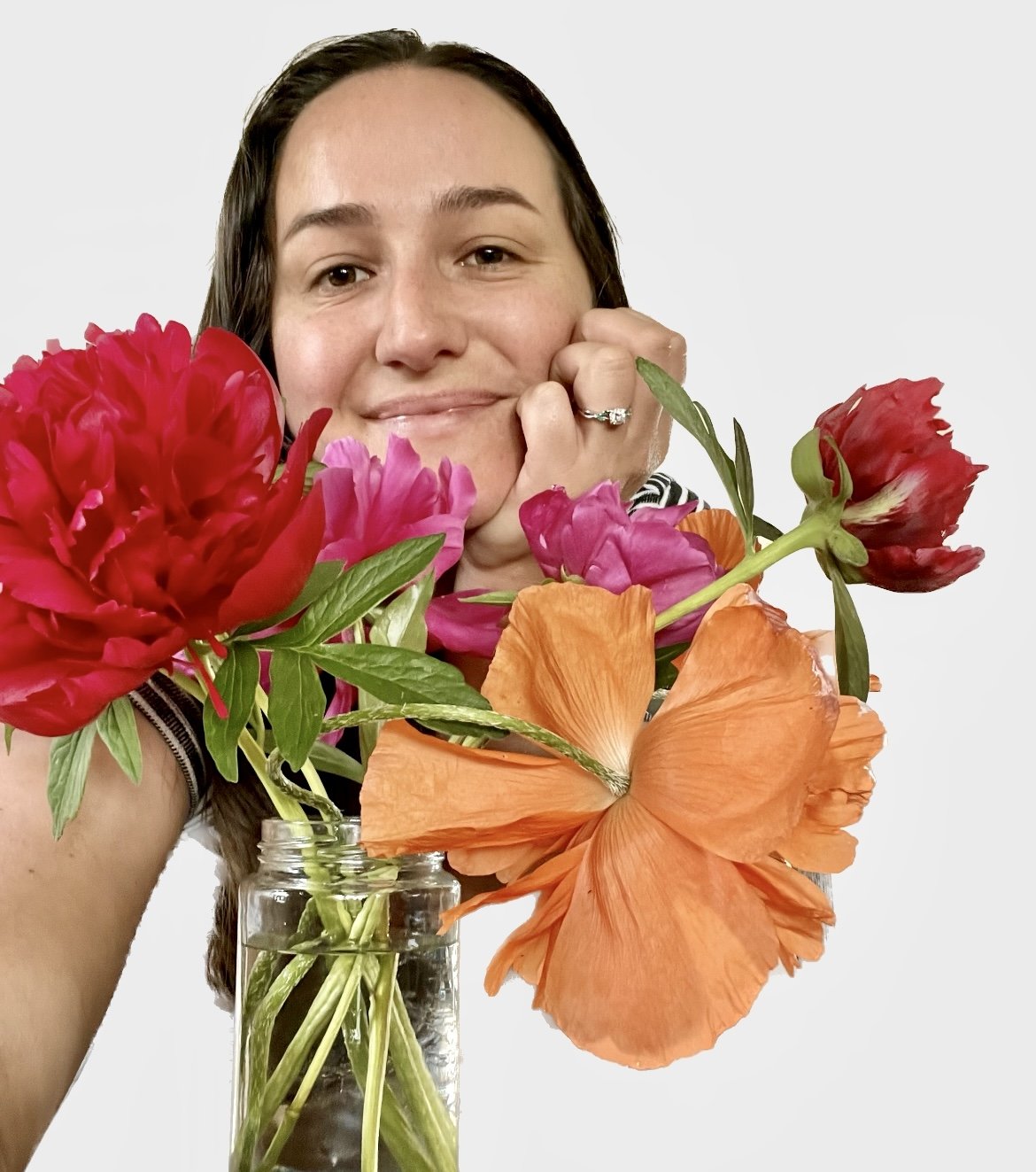Speaker: Roxanne Swentzell and Anne LaForti | Air Date: January 26, 2024 | Run Time: 62 mins | Season 4
Cover art by John Jairo Valencia
Knowledge Symbiosis with Roxanne Swentzell and Anne LaForti
In the fourth episode of our limited series Knowledge Symbiosis: Can Biomimicry and Indigenous Science Harmonize?, Roxanne Swentzell and Anne LaForti engage in a conversation hosted by Sara El-Sayed, converging Indigenous ideologies and scientific understanding of soils, seeds, regenerative versus sustainable terminologies, and steps to healing ourselves and our ecosystems.
Series Synopsis
This limited series, Knowledge Symbiosis: Can Biomimicry and Indigenous Science Harmonize?, is produced by The Cultural Conservancy’s Native Seed Pod in collaboration with Arizona State University and Learning From Nature: The Biomimicry Podcast. We invite dialogue from multiple perspectives—practitioners in biomimicry, and elders, practitioners, and Indigenous scholars—so we might better understand each other and explore opportunities to weave these learnings. These conversations delve into the ethics of science, human-nature connection, regenerative design, and our relationship to all other kin on this planet. Five episodes will be available on The Native Seed Pod and Learning From Nature: The Biomimicry Podcast for listeners to tune in and reflect. The episodes are hosted in rotation by Dr. Melissa K Nelson, Dr. Sara El-Sayed, and Lily Urmann, and feature conversations between Indigenous scholars and practitioners: Kim Tall Bear, PennElys Droz, Melissa Nelson, and Roxanne Swentzell; and Biomimicry scientists and practitioners: Janine Benyus, Dayna Baumeister, Maibritt Pedersen, and Anne LaForti.
“We don’t even have a language for it in English. There’s a relationship, there’s a nurturing that goes beyond just eating healthy food. There’s something that happens on a spiritual level that I think we really need to take into account. That’s medicine. When they say food is medicine, it’s not just the nutrients in it. It’s the whole connection. It’s all of the parts that make us related to that tomato, that corn, that squash, that pineapple–wherever you’re from.
”
Photo by New Mexico True
About Roxanne Swentzell
Roxanne Swentzell is a Santa Clara Tewa Native American sculptor, ceramic artist, Indigenous food activist, and gallerist.
Roxanne is a prominent Santa Clara Pueblo clay and bronze sculptor and contemporary artist whose award-winning works are featured in major public collections, including the Museum of Indian Arts and Culture in Santa Fe, the Smithsonian’s National Museum of the American Indian, Cartier in Paris, and other world-class museums and venues.
Growing up within an artist family allowed Roxanne to naturally take up her mother's clay and start sculpting at a very early age. Her figures represent a full range of emotions and irrepressible moods. Roxanne Swentzell focuses a lot on interpretative female portraits attempting to bring back the balance of power between the male and female, inherently recognized in her own culture. Additionally, she increasingly uses a powerful sense of humor to communicate. Though steeped in her own culture, Roxanne's work demonstrates an astounding universality, speaking to people of all cultures.
Today, Roxanne’s deeply emotive works and unique artistic style continue to be recognized and renowned worldwide. Using the ancient technique of layering coil upon coil, her large, contemporary works reflect the range of the human experience, connecting with both Native and non-Native audiences.
In 2013, Roxanne led the Pueblo Food Experience, where 14 Pueblo volunteers ate, for three months, only ancestral foods available before colonization, and the results were studied and published. She also runs the non-profit Flowering Tree Permaculture Institute, which she helped found in 1989, working to inspire and nurture communities based on Indigenous ways of knowing. The Institute provides workshops, shares resources, trains interns, creates sustainable ecosystems, renews the earth, builds, hosts gatherings, grows food, teaches, and supports the community.
Roxanne keeping bees - photo via Flowering Tree Permaculture Institute
Roxanne’s outdoor patio
Photo credit: Anne Laforti
About Anne Laforti
Anne LaForti is a soil health expert with a Master’s in Biomimicry from Arizona State University. She is a project manager at Biomimicry 3.8, supporting nature-based innovation in the built environment through “Project Positive.” Anne is deeply interested in soil science, microbiomes, mycology, rainwater catchment, urban and regenerative agriculture, and growing nutrient-dense foods. She was the 2022 Spring Nature, Art, and Habitat Residency (NAHR) Fellow in Santa Ynez, where she worked on “Soil as Pattern Language: Emulating Healthy Soil Communities” and is currently a NAHR Ambassador. Anne is committed to creating regenerative designs that support healthy ecosystems to help heal the soils of California and beyond.
Group collaboration and creativity at the Biomimicry Immersion workshop in Mill Valley, Northern California
School Garden: Clifton Middle School's garden care team - during their first work day, as we planted a tree, covered the soil, and tended the compost
about Sara El-Sayed
Sara El-Sayed has a joint position as the Co-Director of the Biomimicry Center and Assistant Research Professor at the Swette Center for Sustainable Food Systems. El-Sayed has a doctorate in food system sustainability, specifically on regenerative food practices in arid regions, and a master's in Biomimicry, both from ASU. She also has a Biomimicry Professional Certificate from Biomimicry 3.8. She held a postdoctoral position at the School for Future Innovation and Society, in Public Interest Technology. Her research interests include exploring ways to have more regenerative and net-positive local food systems, and she is currently involved in the local Arizona food space. Previously she worked as a researcher in Biomimicry and microbial geographies.
El-Sayed is the co-founder of several enterprises in Egypt. Nawaya is a social enterprise working as a catalyst to transition small-scale farmer communities into more sustainable ones through education and research. Dayma is an LLC responsible for outdoor Environmental Education, teaching young adults about Biomimicry and local Egyptian communities. Clayola is an LLC producing low-tech irrigation systems. She is an avid traveler, nature lover, and enjoys tasting foods, cooking and interacting with people through food experiences. Sara is on the board of Slow Food, an international movement that started in Italy aiming to safeguard local food cultures and traditions and does so by promoting Good, Clean, and Fair food for all. Sara has also worked on other podcasts including a series on regenerative food systems.
CREDITS
Host/Writer/Director: Melissa Nelson, Sara El-Sayed, Lily Urmann
Producers: Mateo Hinojosa, Sara Moncada
Co-producer: Raven Marshall
Audio Engineering: Colin Farish
Audio Recording: Melissa Nelson, Raven Marshall, Alexis Stanley
Episode cover artwork: John Jairo Valencia
Original Soundscapes and Songs
Soundscapes and Music Composed and Produced by Colin Farish
Listen to more of Colin’s music at colinfarish.com
Song credits
Music and soundscapes composed, produced, arranged by Colin Farish
Theme song: “Life” By Colin Farish
From the album Colin Farish: “Curious Species”
Featuring:
piano: Colin Farish
percussion: Airto Moreira
guitar: Peter Medlam
bass: Chas Thompson
The Native Seed Pod is produced by The Cultural Conservancy
This episode is being co-broadcast with Learning from Nature: The Biomimicry Podcast with Lily Urmann
Campfire with Kumu: A gathering (around the campfire) of the LA's Soil Sponge Collective in the Sierra Nevada mountains to learn from nature and Kumu Mikilani Young, holding space for Indigenous wisdom and regenerative healing of place
Biomimicry LA (Los Angeles) "Functions of Plants" Walk at the Los Angeles Arboretum and Botanical Garden, facilitated by Botanist Frank McDonough


